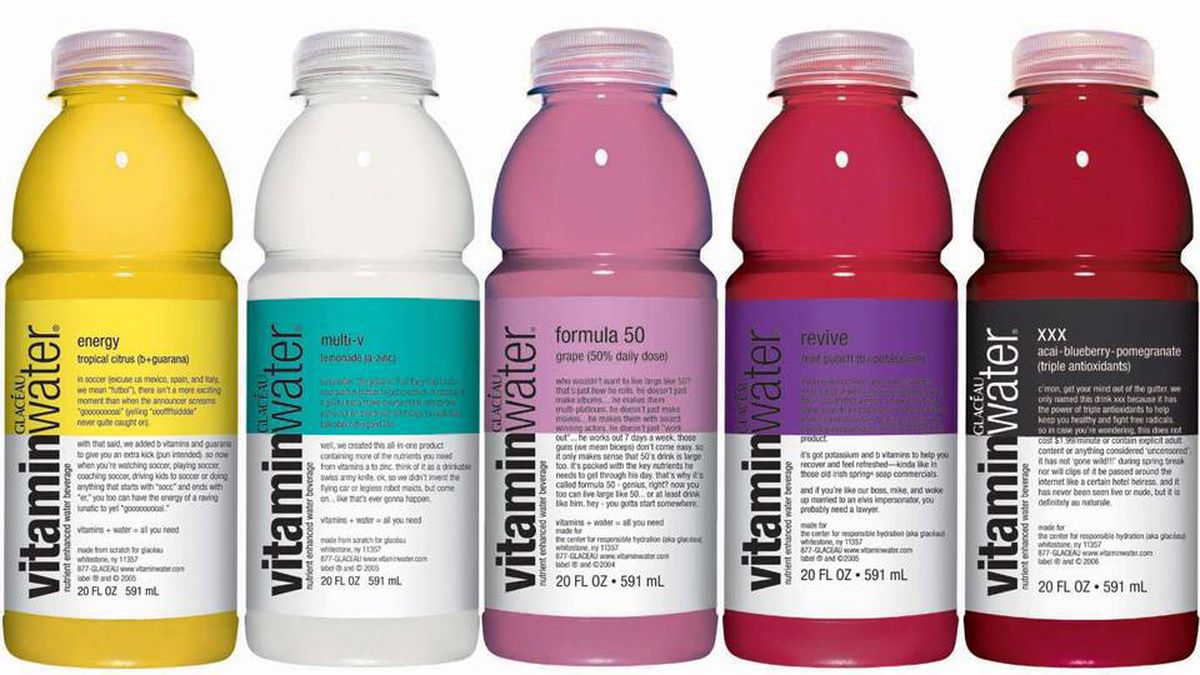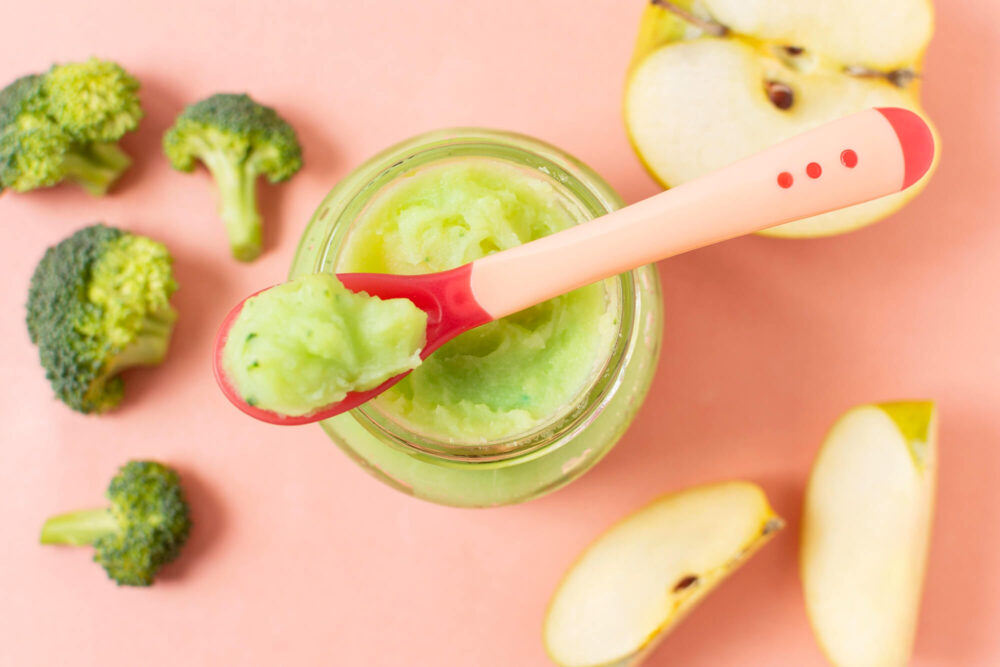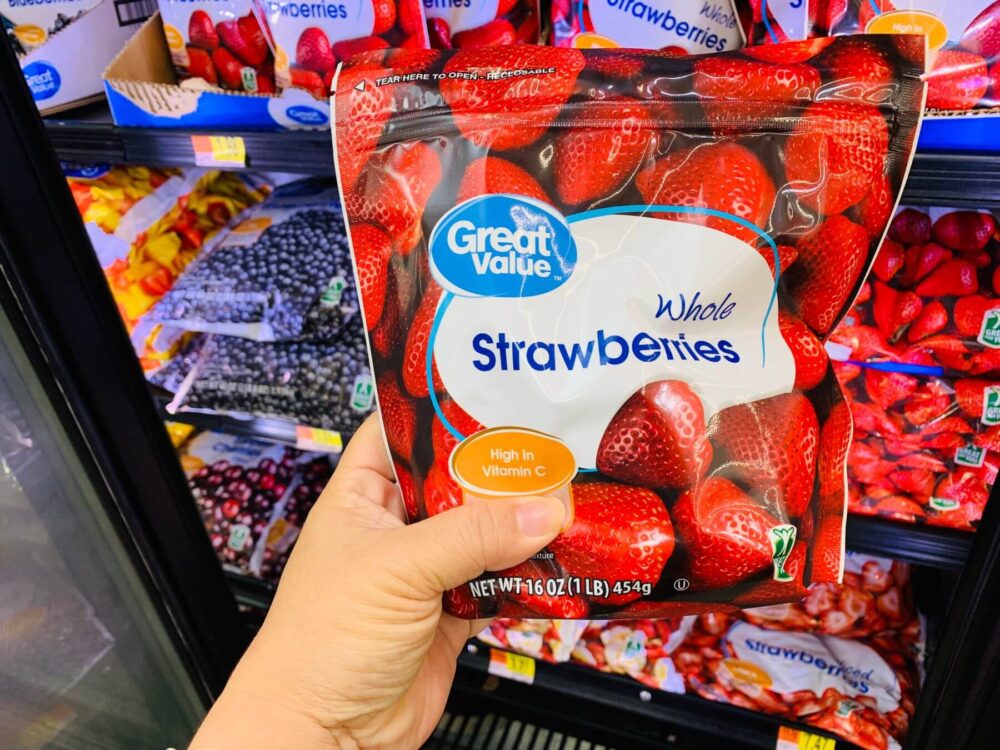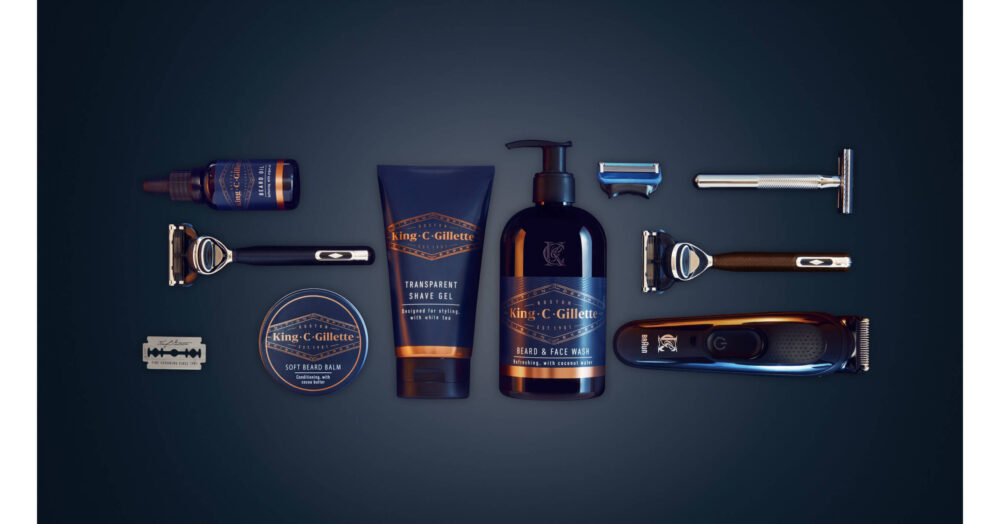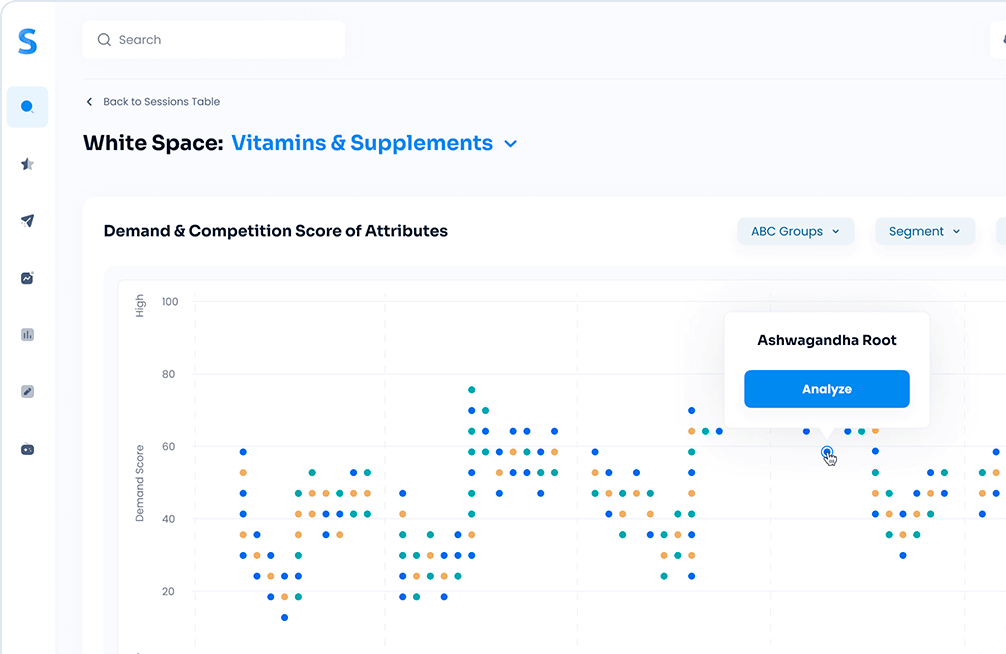Vitamin and flavored waters have great opportunities available for clean labels in 2023. Brands like Coca-Cola’s vitaminwater have always pushed clean label claims like “no artificial colors,” “zero sugar,” and “all natural flavors.” Yet, as consumer preferences evolved since vitaminwater’s inception in 2000, the brand now owned by Coca-Cola has not really updated its clean label claims accordingly.
In fact, the brand has not really captured this as a major priority in their new marketing team.
Coca-Cola recently announced major marketing investments to improve the vitaminwater brand, including the “Nourish Every You” campaign, which tries to recruit new Gen Z drinkers in collaboration with Lil Nas X, a famous musician.
The brand’s latest new launch was in 2021, featuring new products Look and Gutsy, which focus no trending functional benefit claims around eye health and gut health, respectively.
While the products correctly (and intelligently) capture trending consumer needs around functional benefits, they continue the 22 year pattern of dismissing the rise in consumer expectations around clean label claims. If vitaminwater breaks this pattern, their new product launches could expect to grow in revenue by as much as 10 percent.
What clean label claims should Coca-Cola’s vitaminwater include in future product launches?
To understand white space opportunities around vitaminwater’s clean label potential, we opened up Simporter’s White Space AI tool, which cross-analyzes millions of consumer datapoints to recommend which attributes to include in new products.
An easy innovation path could be for vitaminwater to relaunch existing assortments with a clean-label claim driving the new and unique feel of the launch – just as the brand did with its zero sugar line, launching many of the same flavors but creating a new reason to purchase because it is sugar-free.
The graphic below shows the top labels ranked according to our White Space AI tool. The rankings are determined by predictions of consumer demand, passion, and in-market competition using Artificial Intelligence and Natural Language Processing.
Sodium-Free
Vitaminwater should prioritize sodium-free as the top 2023 top clean label opportunity in the flavored water category. It has a positive passion score which means customers feel strongly about it. It also has a very high demand which means that it is a highly sought out label. However, it does have a very high competition score which means the market is saturated with products that boast sodium-free ingredients. This could make it more difficult to stand out for a newly emerging brand.
AHA is a popular brand that boasts their drinks as being sodium-free. They’re available as an 8 pack and are packaged in colorful metal cans.
Sodium-free is a desirable trait for vitamin and flavored waters because according to the CDC, “the 2020-2025 Dietary Guidelines for Americans recommend that Americans consume less than 2,300 milligrams (mg) of sodium per day as part of a healthy eating pattern.” As a result, more people have begun to pay attention to the sodium levels in their food and drink choices. Although sodium helps to increase electrolytes, it is recommended that drinks should stay below 30 mg or be free of it altogether.
Zero Sweeteners
Zero sweeteners can be the 2.0 of sugar-free vitaminwater, with a positive passion score, very high demand score, yet a large amount of competition. Similar to sodium, more individuals are watching the amount of artificial sweeteners they intake, concerned that they may cause diseases or be worse for your health than sugar itself.
Customers are looking for all-natural products, so having no added sweeteners is a good thing. A zero sweetener label is an easier way to continue accessing your sugar-free audience without losing their interest.
LaCroix is a zero sweetener, zero calorie flavored seltzer water. vitaminwater could bring back its sparkling flavored water range but with a larger focus that it is free of artificial sweeteners instead of trying to enter the energy drink category.
Preservative-Free
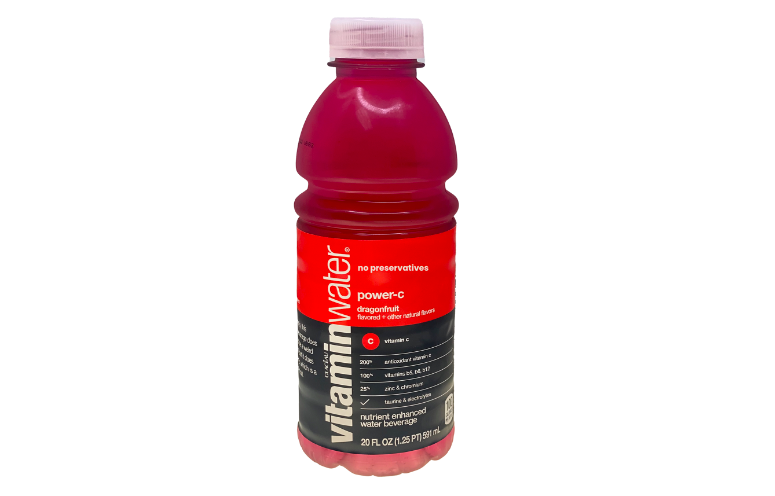
Consumers are gravitating toward the preservative-free label because of the trend for healthier, more natural food and drinks. There have also been multiple studies that have found preservatives to be detrimental to health, especially for children. So, the most natural vitamin and flavored waters with the preservative-free label will do best on the market.
This label also has slightly less competition which means that companies and marketers have a better chance of gaining attention for using the label on their products.
Just like True Drink’s Preservative-free flavored water, vitaminwater can latch onto the increasing consumer consumer demand and passion for preservative-free flavored beverages. In the UK, flavored water brand Oshee has been taking off with their preservative-free vitamin waters for a few years now.
Chemical Free
The next two clean-label claims are what we call tier-2 opportunities, in other words, they are medium-level opportunities that you can leverage if they fit your existing plans. Lower overall opportunities than the above three but with strong levels of consumer demand
Chemical free stands out because of its low competition score. Flavored water brands do not promote that they are chemical-free nearly as much as they should. This makes chemical-free a white space opportunity, where consumers will not have an apples-to-apples comparison across brands should vitaminwater produce a chemical-free water. The closest that consumers could get to are claims of “natural,” which is a far more saturated space.
In the flavored water category, consumers may be especially concerned about chemicals since the water appears in different colors or with unnatural flavors. Vitaminwater should add chemical-free as a sub-claim to its existing products due to its tier-2 consumer demand.
BPA-Free
BPA stands for bisphenol A, a chemical that has been used to make certain plastics as early as the 50s. It is used to harden plastics and has been around for a long time. There have been studies that have shown BPA disrupts endocrine function. Thus, many consumers have decided to boycott plastics that contain it.
One of the highest potential claims around the intersection of sustainability and clean label preferences, BPA-free is an easy way to appeal to both eco-conscious consumers as well as health-conscious consumers.
Vitaminwater’s packaging is already BPA-free, but the label is not visible, which means a consumer who is not well aware of their manufacturing processes would not know they are BPA-free without looking closely at the back of the pack. Instead of waiting for consumers to pick up their product to check each package, a low hanging fruit opportunity could be to promote the BPA-free claim on the front of pack to appeal to consumers.
Conclusion & Key Takeaways
Coca-Cola can improve new vitaminwater product launches by focusing on its clean-label claim upgrades. Consumer preferences in flavored waters change regularly yet Coca-Cola has not updated clean label claims since the sugar-free launch over a decade ago.
The top opportunities for new product development by Coca-Cola’s vitaminwater are to include claims around sodium free, zero sweeteners, preservative-free, chemical-free, and BPA-free. Consumers are health-conscious and holding beverage brands to higher health standards than ever before. They are gravitating towards natural products that have only the best ingredients.
